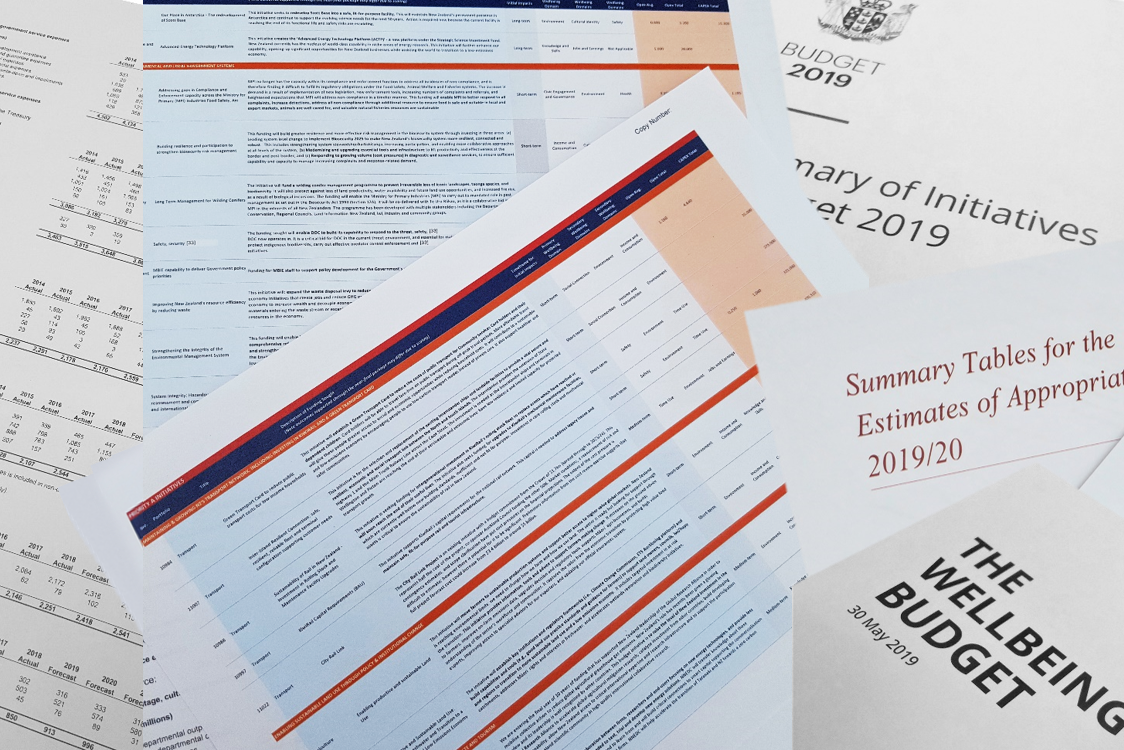Wellbeing budgets and the environment: A promised land?

Budget documents, PCE
The Commissioner has reviewed what we know and do not know about the link between the environment and wellbeing, and how this has been incorporated into decisions about government spending.
As part of the movement towards measures of success beyond gross domestic product, wellbeing has recently been adopted as the goal of budgetary policy in New Zealand.
If wellbeing is to be the lodestar of public expenditure, and spending on the environment is justified in relation to this goal, then links between the state of the environment and wellbeing need to be understood.
The review found that measuring or determining the value of the environment and its links to wellbeing is not easy. This makes it difficult to slot the natural environment into a budget process dominated by short-term decisions based on financial terms and well-defined outcomes.
Not only is the natural environment dynamic and complex, the environment and wellbeing are understood in different ways.
The report found there is broad agreement in western and te ao Māori thinking that the environment is linked to both our economic and non-economic wellbeing now and in the future.
But there are also fundamental differences in world views. Central to a Māori perspective of wellbeing are whakapapa and mauri, where all things living and non-living are connected in reciprocal relationships through time.
In contrast, the analysis that informs wellbeing budgets emphasises the value we derive from the environment.
The Commissioner has made four sets of recommendations aimed at improving the way environmental considerations are handled and communicated in the budget process.
They include improving the capacity of the budget process to value the environment, and increasing the quality of information available to reflect what is known about future risks, uncertainty and tipping points.
The Commissioner also wants a review of the way cost–benefit analysis is applied to budget initiatives to ensure that budget proposals with enduring benefits for future generations are not effectively discounted away to nothing.
Finally, the Commissioner has suggested that the way long-run environmental issues are handled in the budget priority setting process needs to be re-examined and formally linked to state of the environment reporting.

